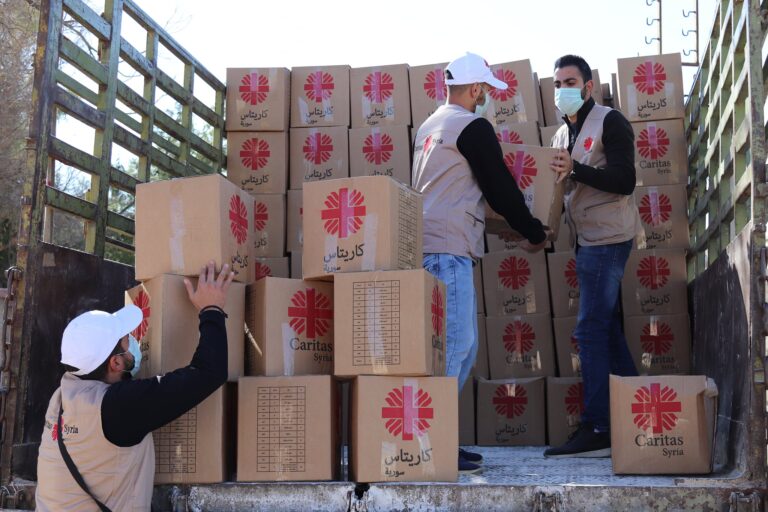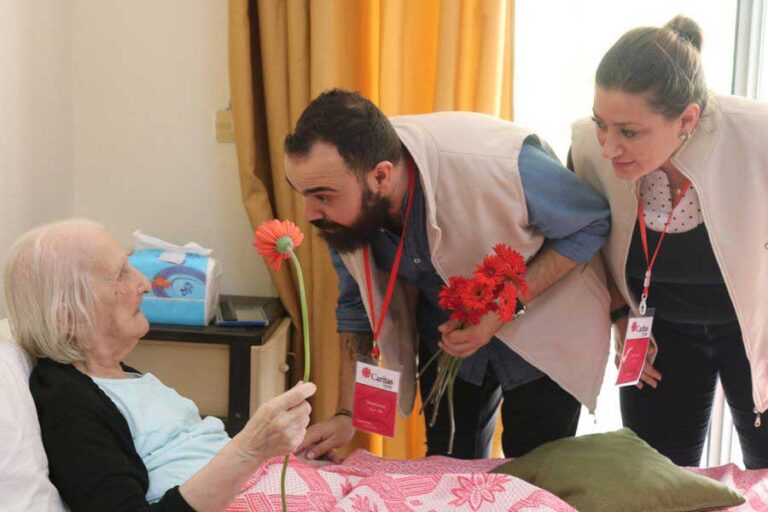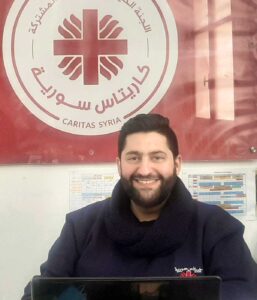Elias Hamwi has worked as a Caritas Syria project coordinator in the eastern part of Aleppo for over three years. Here he reflects on the challenges facing Syrians and Caritas staff.
Life is getting increasingly difficult in Syria. This is the contrary to what we were all expecting. The current economic situation as a result of the ten-year war has left people paralysed in terms of providing for their simplest needs.
People who have jobs find that their salary is not even enough to cover a quarter of their monthly expenses for food, hygiene, health or education. Young people and single mothers aren’t able to find work or if they do, they don’t earn enough to cover their bills.
People across the whole country are suffering due to the harsh economic situation. Al Hassakeh, Homs, Aleppo, Hama and Damascus along with their rural areas, where there is limited access to basic services, are suffering the most.

Photo by Caritas Syria
What inspires me in my work as project coordinator is when I hear of all the people Caritas has helped make less vulnerable and who have been able to have a brighter outlook thanks to Caritas’ work. We do our best to empower the most vulnerable people and to accompany people towards autonomy.
But it is very challenging working as a humanitarian aid worker in a long-term crisis. We ourselves at Caritas are living through the same crisis as the people we help. I have been displaced because of the war, as have some of my Caritas Syria colleagues. The difficulties we’re helping people with – such as hunger, displacement, trauma – are sometimes issues we ourselves have struggled with. This can be unbearable at times.
When we first go into a new community to help, it takes time to gain their trust. However, once we start to help and we’re attentive to their changing needs, we start to gain trust.

Photo by Caritas Syria
Some of the people we serve bring tears to my eyes. We gave one elderly lady a voucher for warm clothes to cope with our harsh winters. We discovered that she used the vouchers to get children’s clothes and none for herself. When we asked her why she told us she’d been left with three grandchildren to look after because the parents had left. She said the least she could do was to ensure they stayed warm, even if it meant she herself didn’t get warm clothes.
It is an honour for us that in some places in the eastern regions, especially in the area covered by the project that I’m responsible for, they call us the Association of Christ. I guess this is a clear expression about what our work means to the people we serve.
At Caritas Syria we have focused on increasing professionalism within the organisation and improving our humanitarian response over the past ten years, so we are much more able to respond to people’s needs as rapidly and effectively as possible.

Elias
But I feel numb as we face the tenth anniversary of the war. I would prefer not to call it an anniversary because then there is still a thin light of hope that we would wake up one day and find out that this was just a terrible nightmare.
I hope for a better future for Syria and for the Syrian people. I also hope that we reach a point where we contribute to achieving equality in terms of gender, religions and social classes.
As we face this grim anniversary, I can only pray for God’s mercy and may he give us strength to face these harsh conditions with grateful and loving hearts.
Help Syrian children get education, food and health
